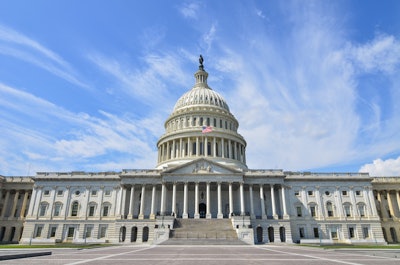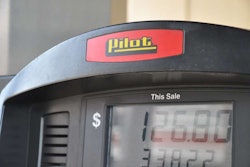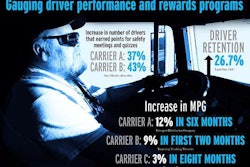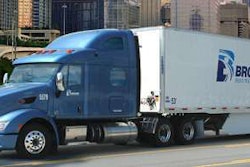In this Golden Age of partisan congressional gridlock, the sudden, unanimous passage of a recent trucking bill stunned many Capitol Hill observers – and now many in trucking are hoping to tap that lightning in a bottle once again. So let’s compare September’s successful sleep apnea campaign to the ongoing push to roll back hours-of-service changes.

The central players in both are trucking, the industry regulator and Congress. But the issues would seem to be substantially different.
The hours-of-service rule, after all, has been hotly debated and litigated for a decade now, and the recent changes are the first to pass judicial review right out of the box. Essentially, the Federal Motor Carrier Safety Administration said the rulemaking was strictly by the book, a process that was open, fair and thorough – and a federal appeals court agreed.
The sleep apnea legislation simply demands that FMCSA apply the same rigor to the development of any such policies, rather than enacting them via an administrative shortcut, such as issuing “guidance.”
And FMCSA – once the bill got some attention, opting to switch course rather than fight – subsequently issued a simple statement promising to play by formal federal procedures on the matter. Mission accomplished.
Still, Congress pressed forward. Introduced Sept. 12, HR 3095 passed both houses without a dissenting vote, was signed by the president and became law Oct. 15 — a mere 33-day process. The question, in terms of the pending HOS legislation, is how much did FMCSA’s announcement impact the politics? Essentially, the overwhelming action by Congress didn’t do much, except make sure FMCSA keeps its promise.
On hours-of-service, the agency clearly aims to stand its ground. Administrator Anne Ferro said so, explicitly, in a Small Business Committee hearing last week. “No, absolutely not,” were her exact words when Rep. Richard Hanna if the agency would consider pulling the changes that went into effect July 1.
Indeed, if the hearing were a boxing match, I’d probably give Ferro the edge in a close decision. She was firm but not overbearing, and she was quick to counter some aggressive questioning with thoughtful, substantial replies in support of FMCSA’s hard work on hours-of-service.
Related: Ferro grilled at hours hearing, says agency’s not open to overturning rule
If there was a weakness to her counterpunches, it was the hodgepodge of data and analysis that didn’t quite deflect the critics on the panel.
At issue, specifically, was the FMCSA conclusion that the HOS changes would save 19 lives each year – a number which, for congressmen accustomed to spending dollars by the trillion, hardly rises to the level of a rounding error.
Rep. Tom Huelskamp, a Kansas Republican, was severely critical of the lack of current data and the delay in a congressionally mandated field study.
“Yet you come here and tell us you know exactly what the impact [of the new rule] is?” Huelskamp said. “This is what upsets my constituents: They understand the desire for safety, but they want it to be based on science, and the ability to actually work with the folks in the field, that drive a truck every day. And they’re telling me this is not working and it’s not making sense.”
Ferro’s defense was largely based on the percentages: 85 percent of the industry isn’t impacted by the changes. Which begs the question, duly asked, “Why bother?” Which then opened up the discussion of whether life is more precious to bureaucrats, Congress, or the trucking industry – a sloppy round in an hour or so of otherwise crisp exchanges.
A number of trucking’s supporters cited the new ATRI study on the changes, in which 80 percent of carriers report a significant impact, to which Ferro responded with her most memorable counterpunch, calling the study “a vote early, vote often concept.” And she added that the new rule might indeed impact some drivers’ pay, but that the level of base pay offered by some carriers is what’s truly “unconscionable.”
In a follow-up round of testimony, trucking spelled out its position, as reported by CCJ’s James Jaillet here.
So, after an initial hearing as a nice warm up, where are we now?
In short, for the TRUE Safety Act to get any traction, legislators are going to have to be convinced that the FMCSA underplays the value of over-the-road trucking and underestimates the direct impact of the new HOS rule on many small businesses and working people. Indirectly, even though many, many companies in FMCSAs comprehensive industry census are not impacted, the segment most familiar to the American public – and critical to bringing the public their stuff – is getting hurt and the pain will trickle down to consumers.
By the numbers, the hours-of-service bill currently has 40 co-sponsors. The sleep apnea bill had 69 when it was passed unanimously by the House. Critically, Hanna will need an influential Democrat to help move the bill out of the Transportation committee and through the House. (Rep. Michael Michaud, D.-Maine, is among the bill’s early co-sponsors.). The potentially good news is that trucking can call on a friendly Democrat in the Senate, Mark Pryor of Arkansas, should the legislation get that far.
However, according to govtrack.us, the bill has only a 27 percent chance of getting past the T&I Committee and a 7 percent chance of being enacted.
But those are the same early odds initially assigned to the sleep apnea bill.
And while the legislation would be suitable for inclusion in the next highway bill, passage of a standalone bill would clearly be the industry’s preferred option on the sooner/later/who knows timetable.
Time to pick up the phone, truckers, and let Washington know what you think – either way.











